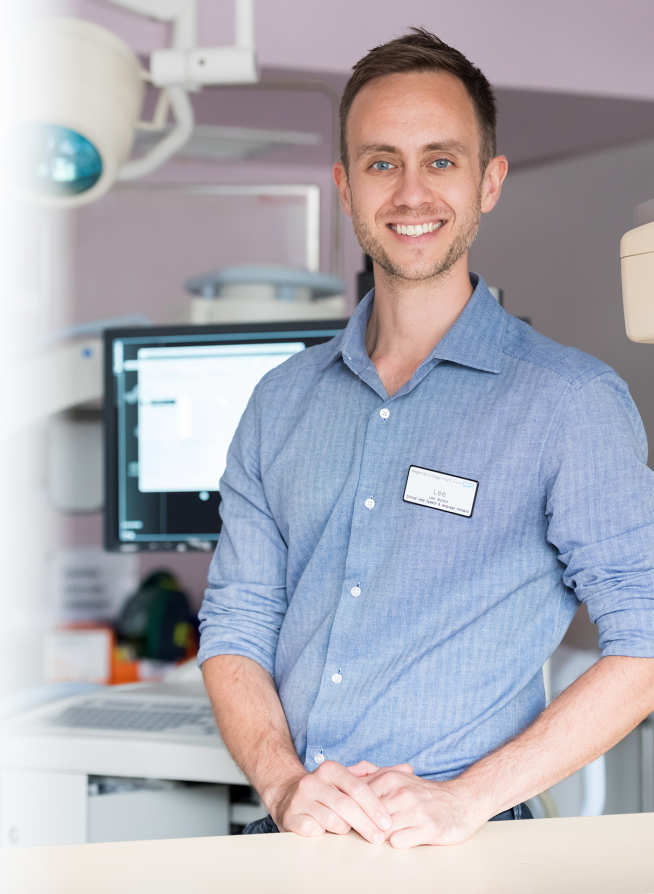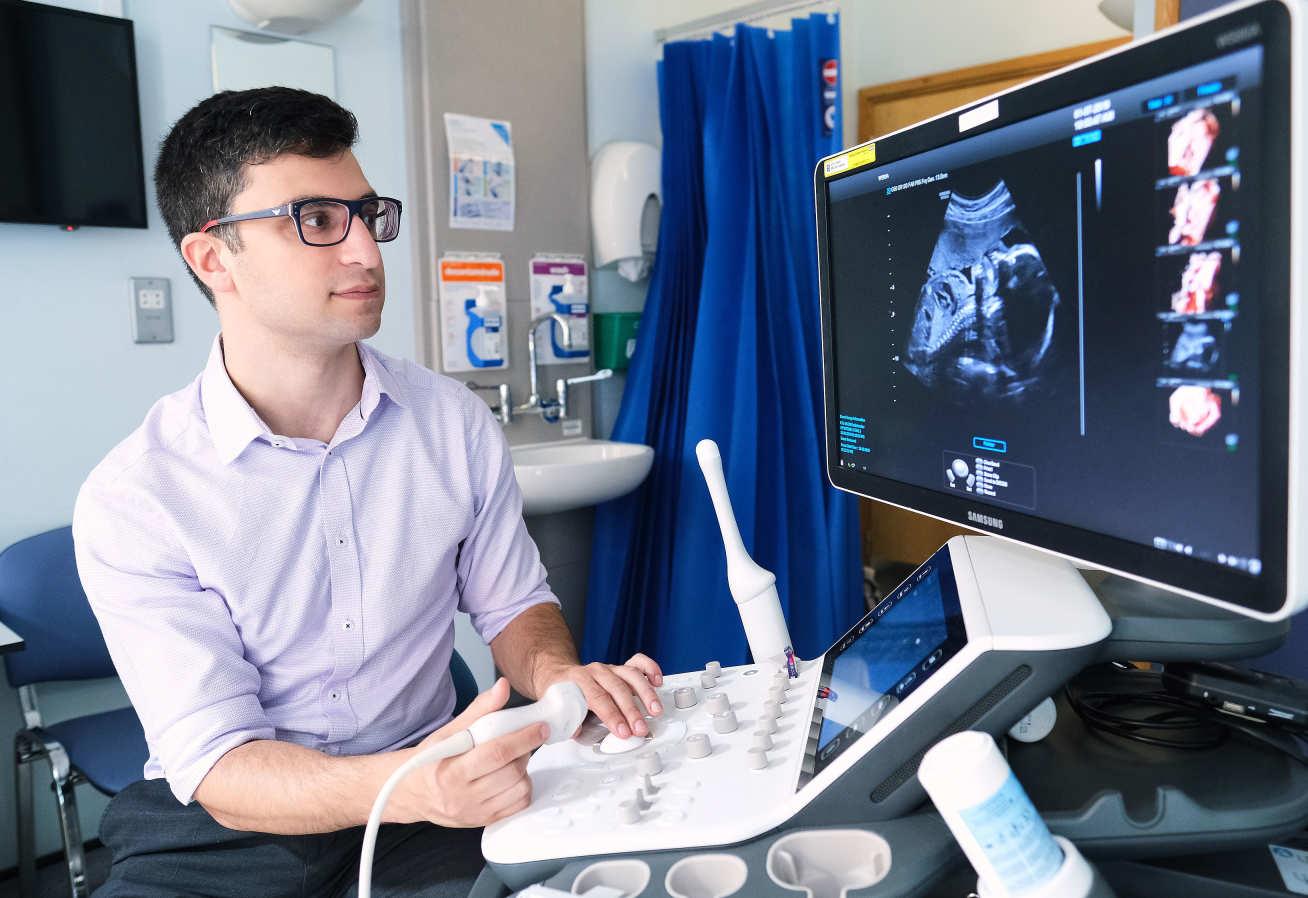Imperial programme turning health staff into researchers celebrates 10 years
by Maxine Myers

A programme to support and encourage more clinical staff to undertake research is entering its tenth year with twelve new fellows.
Working in the fields of nursing, speech therapy and gynaecology, the twelve will undertake research over the next year as part of Imperial’s Research Fellowship Scheme. Below, three of the fellows discuss their new projects looking at an eye diseases, chronic obstructive pulmonary disease and ectopic pregnancy.
Since the launch of the programme ten years ago, more than 50 Trust staff have been awarded fellowships, which are worth up to £65,000 each (see sidebar). Some staff have gone on to become clinical academics lecturing at the College and projects carried out by fellows have had an impact on clinical care. For example, Dr Shivani Misra, Honorary Clinical Research Fellow at Imperial College London and Consultant in Metabolic Medicine at Imperial College Healthcare NHS Trust, used her fellowship to find a new way to diagnose a rare type of diabetes called maturity onset diabetes of the young (MODY) more accurately than current methods.
Professor Waljit Dhillo, champion of the scheme and Professor in Endocrinology and Metabolism at Imperial College London, said:
“I would like to congratulate and welcome this year’s fellows to the research fellowships programme. Research is vital for improving patient outcomes and this year’s fellows are working on projects that may have positive impact on how we deliver care at the Trust.”
From eye diseases to ectopic pregnancy: meet some new fellows
Melanie Almonte, Research Nurse, Imperial College Healthcare NHS Trust
Melanie will study patients who were born with an eye condition called retinopathy of prematurity (ROP) to see if they’re at risk of other eye diseases.
ROP occurs when a baby is born prematurely and as a result has not reached an important milestone in the development of their eyes.
For the eyes to function properly, the retina needs a consistent supply of blood. The blood vessels that supply this blood usually develop between 16 and 36 weeks into pregnancy. If a baby is born prematurely and the development of these blood vessels is incomplete, there will be areas that the retina does not receive enough oxygen and nutrients, which can in turn affect a baby’s ability to see properly.
Most babies diagnosed with ROP have mild cases and no treatment is needed, as the condition will resolve itself. However, some studies have reported that adults with a history of ROP have an increased risk of developing other chronic eye diseases such as glaucoma and cataracts. Adult eye diseases affects 1.93 million people in the UK and sight loss from these diseases cost an estimated £15.8 billion to treat, imposing a significant economic burden on public funds and quality of life.
Melanie will create a cohort of 100 adults with a history of ROP, at the Western Eye Hospital. They will undergo a series of detailed eye tests as well as quality of life questionnaires to check their vision and health of the eyes. They will also record how many adults with a history of ROP develop further eye diseases.
Melanie will then compare the cases of adults with ROP who develop further eye diseases with those who want to understand why they are more prone to developing later eye diseases.
The results will also be used to develop a cost effective framework for monitoring and following up patients with ROP through childhood into adulthood. The aim is to identify ROP patients who are at risk of developing further eye complications and intervene at an earlier stage with treatments such as surgery.
Melanie said: “Treating adult eye diseases places a huge financial burden on the NHS and we need to find ways of diagnosing these conditions at a much earlier stage. My project aims to find an effective and low-cost solution for monitoring children with ROP over a longer period of time and identifying children at risk of further complications at a much earlier stage so we can intervene with treatments.”
Lee Bolton, Clinical Lead Speech and Language Therapist at Imperial College Healthcare NHS Trust.

Lee will carry out a study to measure swallowing outcomes of patients who are admitted to hospital with acute exacerbation of chronic obstructive pulmonary disease (AECOPD).
COPD is a term used to describe lung conditions that causes breathing problems such as emphysema and chronic bronchitis. It is a common condition that mainly affects middle-aged and older adults who smoke. AECOPD occurs when there is a sudden worsening of COPD symptoms such as shortness of breath and it is usually caused by a bacterial or viral infection. Around 1.2 million people have COPD in the UK and 10 per cent are admitted to hospital with AECOPD.
Patients with COPD often have problems swallowing food or liquid. This can lead to food or liquid entering the airways or lungs causing infections known as aspiration.
However, it is not known if aspiration is worse during episodes of AECOPD.
Lee will recruit 20 patients admitted to hospital with AECOPD at Charing Cross Hospital and measure their respiratory and swallowing function using a Fibreoptic Endoscopic Evaluation of Swallowing (FEES) test. During the test, a thin flexible instrument is passed through a patient’s nose and the clinician views parts of the patient’s throat as they swallow. Lee will also use other clinical data and responses from health questionnaires to assess whether it is possible to use the FEES test to identify patients who are at risk of aspiration during AECOPD.
Lee said: “Aspiration can cause major complications and damage the tissues of the lung. Patients with AECOPD are at risk of aspiration and there is a need to find new ways of identifying them at an earlier stage. My project aims to develop a new methodology for diagnosing aspiration in patients so we can treat and reduce complications at an earlier stage.”

Dr Christopher Kyriacou, Clinical Research Fellow in Obstetrics and Gynaecology at Imperial College Healthcare NHS Trust
Dr Kyriacou will investigate whether a mathematical tool can identify women who are at risk of an ectopic pregnancy following a classification of pregnancy of unknown location (PUL).
PUL is a term used to classify a pregnancy that cannot be located in the womb using ultrasound scanning. This could mean that an early miscarriage has occurred and the pregnancy has passed and is no longer visible on the scan. It could also mean an early, viable pregnancy that cannot yet be visualised. However, in some cases, the pregnancy is located outside the womb. This is called an ectopic pregnancy and can be life threatening if it is not treated promptly.
Doctors have attempted to differentiate ectopic pregnancies in patients classified with a PUL using blood tests to measure the levels of the pregnancy hormone human chorionic gonadotrophin (hCG). If a patient has an ectopic pregnancy the hCG level can marginally increase, marginally decrease or remain static. Previous studies have shown that this method is inaccurate and ectopic pregnancies are missed as a result. The process is subjective, requires many hospital visits and is stressful for patients as they wait for the outcome of these tests and a final diagnosis.
Dr Kyriacou will recruit up to 500 women following a classification of PUL and use a mathematical software tool known as the ‘M6’ PUL risk prediction model, with the aim of assessing the presence of an ectopic pregnancy with greater accuracy.
The tool works by analysing a woman’s hCG levels as well as progesterone levels from blood samples over a 48 hour period and gives a score that indicates if the patient is at risk of an ectopic pregnancy. If they are at high risk, they are referred for enhanced investigations and follow up. In a diagnostic accuracy study, the tool was 92 per cent accurate at correctly identifying women classified with a PUL who were at risk of an ectopic pregnancy.
Dr Kyriacou said: “Ectopic pregnancies can be life threating and there is an urgent need to diagnose them more accurately so we can administer treatment. Current methods are too long, require too many hospital appointments and can be distressing for women and their loved ones. I hope my study will allow us to develop more effective methods for diagnosing women who are at risk of an ectopic pregnancy so we can help them at a much earlier stage.”
Article supporters
Article text (excluding photos or graphics) © Imperial College London.
Photos and graphics subject to third party copyright used with permission or © Imperial College London.
Reporter
Maxine Myers
Communications Division